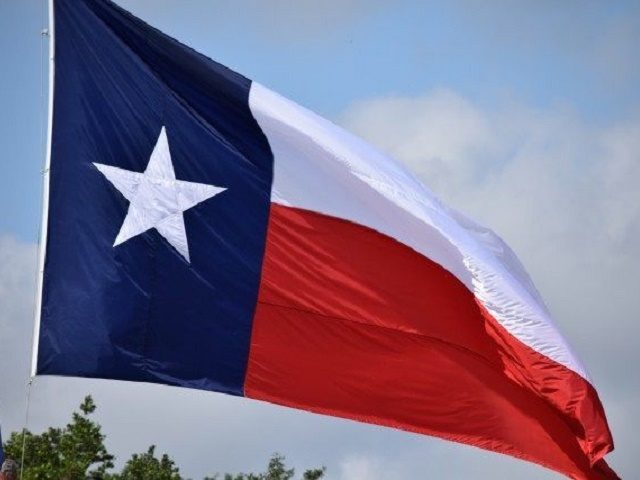Texas leads the nation with the most economically-recovered cities since the Great Recession, says a new study by WalletHub.
They measured the progress of the nation’s local economies since the financial crisis, comparing 505 U.S. cities of varying sizes over 18 key economic indicators, ranging from “inflow of college-educated workers,” “ratio of part-time to full-time jobs,” “median household income,” “share of households receiving public assistance,” “non-farm payrolls change,” plus foreclosure, poverty, and homeownership rates.
WalletHub’s main findings revealed the top five recession-recovered U.S. cities are in Texas: Midland (1), Odessa (2), The Woodlands (3), College Station (4), and Edinburg (5). Additionally, Midland followed by Odessa, and The Woodlands held the nation’s highest home price appreciation values.
Also in the top 10 are northern California’s hi-tech hubs Santa Clara (6) and Mountain View (7), followed by Austin (8), Provo (9), and Denver (10), the last of which edged out Texas border city Brownsville (11). El Paso (13), Bryan (16), Fort Worth (17), Killeen (20), and Corpus Christi (23) made the top 25.
WalletHub also gauged economic recovery by examining cities based on size. Midland and Odessa placed first and second in the small cities category, reflecting similar findings to a 2014 U.S Bureau of Economic Analysis that showed between 2008 and 2012 Odessa outpaced other municipalities with a 10.2 percent increase in personal income, followed by Midland, at 9.6 percent.
The Midland-Odessa metro area is often known for its petroleum economy. A 2015 downturn in oil prices created an economic tailspin, although Texas continued to lead the nation in oil production. At the time, former Governor Rick Perry predicted falling oil prices would be a “relatively short-lived economic challenge” and the impact would not likely hit Texas like the oil bust of the 1980’s because the state diversified.
In November, the U.S. Geological Survey discovered the largest oil and natural gas formation of its kind in the Midland-Odessa region. It may yield 20 billion barrels of crude oil, 16 trillion cubic feet of natural gas, and 1.6 billion barrels of natural gas liquids, Breitbart Texas reported.
Even though the Great Recession was, technically, over in 2009, many of the nation’s cities continued to feel the sting. More than a dozen, including Detroit and San Bernardino, declared bankruptcy. Nevada’s Reno (495) and Sparks (498), Athens, GA (496); Florida’s Palm Bay (500) and Deltona (504), plus California’s Turlock (499), Hesperia (501), Stockton (502), Vallejo (503) and San Bernardino (505) were WalletHub’s least recovered cities.
Markets with sluggish home values included California’s Stockton and Salinas, as well as Detroit. Nevada’s Sunrise Manor and Florida’s Lehigh Acres are on this list and are among cities with sustained high poverty rates.
Conversely, Texas border cities Edinburg (1) and Brownsville (2) grabbed the top spots nationwide for decreasing poverty rates. El Paso came in third. East Orange, NJ, placed fourth and Midland was fifth. However, McAllen (499) and Baytown (500) placed poorly as cities with the lowest decrease in the ratio of part-time to full-time jobs.
San Francisco placed respectably at 62 in the main findings, but got weighed down by an unfavorable “economic environment” ranking of 299, after factoring in metrics like median home prices, homeownership rates, foreclosures, and bankruptcies. Other main finding metropoles include Washington, D.C. (73), Boston (110), New York (137), Philadelphia (167), Chicago (232), Los Angeles (260), and Phoenix (472).
In addition to the small city of Midland, Texas houses the nation’s number one recovered medium sized city of Brownsville, and the large city winner, Austin. Denver (2), El Paso (3), Fort Worth (4), Corpus Christi (5), Oklahoma City (6), Houston (7), San Antonio (8), Dallas (9), Minneapolis (10) round out the top 10 recession recovered large U.S. cities.
Interestingly, in the main findings, Dallas ranked at 52, surpassed by some of its burgeoning suburbs including Denton (22), Irving (29), Grand Prairie (30), Frisco (34), Allen (45), Richardson (48), and Flower Mound (49).
WalletHub compiled its findings through data collected from the U.S. Census Bureau, Bureau of Labor Statistics, Administrative Office of the U.S. Courts, U.S. Bureau of Economic Analysis, ATTOM Data Solutions (RealtyTrac), Experian, and United States Common Sense.
In 2016, a Texas A&M University Real Estate Center article, Not Back Yet, Some States Still Lagging After Great Recession, noted the Texas economy outperformed most states and the U.S. as a whole over the past decade. The state matched its pre-recession, non-farm employment peak at the end of 2011 while the nation attained parity in 2014. Besides oil, gas, and industry diversification, Breitbart Texas has reported that net domestic migration, the influx of transplants from other states, contributed to the Texas recovery, all fueled by the state’s business-friendly climate and good quality of life that continues to attract families and corporations to the Lone Star State.
Follow Merrill Hope, a member of the original Breitbart Texas team, on Twitter.

COMMENTS
Please let us know if you're having issues with commenting.